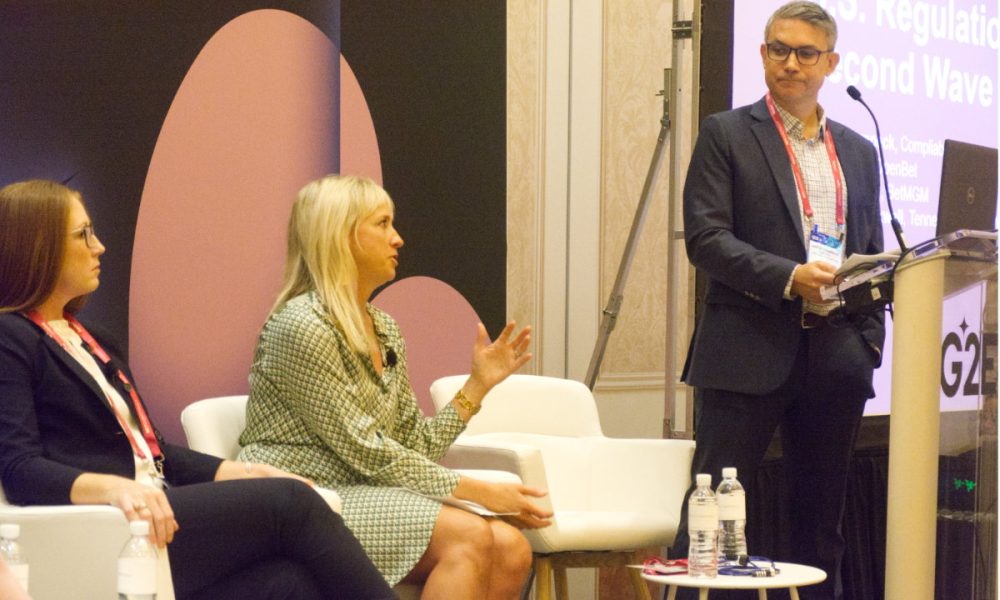The doubling of taxes from 10% to 20% on Ohio sports betting over the summer as part of the state’s new budget has raised the prospects that the industry will see more of the same in other states. Not pushing back could reduce the number of operators and possibly send people back to the illegal betting market.
The issue was raised Monday by Justin Stempeck, chief regulatory officer at Compliable, who moderated a panel discussion at G2E on future regulation of the gaming industry that includes not only taxes, but increased scrutiny of advertising, as has happened in Europe where there have been bans.
“It’s possible that by accepting a higher tax rate and not pushing back, it has undercut (the industry’s position),” said Rhea Loney, chief compliance officer at BetMGM. “It’ll be more difficult for some of the smaller operators to enter those jurisdictions or put in bids for RFPs. At some point, you’ll see a smaller number of operators in some of those jurisdictions with the highest tax rates.”
Loney noted the risk engendered by a smaller number of operators. Regulators might ask, If the same amount of people are wagering, why should they care if there are three or four operators versus 10 or 15?
“Competition is healthy and ensures good practices,” Loney said. “Even in areas of compliance, customer service, and responsible gaming, if they’re not able to provide high standards in those areas, patrons may go back to the illegal market with these higher tax rates.”
Jess Feil, vice president of regulatory affairs and compliance at OpenBet, said whenever she talks to lawmakers about legalizing sports betting, they ask her two questions: What should the tax rate be? And how should they protect players?
“The tax rate is always at the forefront of the policymakers’ minds,” Fell said. “Sports betting isn’t a silver bullet from a revenue-generating perspective. It’s about getting players to a legal and regulated marketplace and there are some tax benefits.”
Stephanie Maxwell, general counsel for the Tennessee Sports Wagering Council, said when her state legalized sports betting, it had a tax of 20% on gross gaming revenue that has since been changed to 1.85% of total handle.
“We’re the first to have a straight handle tax and it was a policy decision,” Maxwell said. “It’s cleaner and easier to regulate without having to police deductions.”
Loney said the problem when implementing a hold-percentage tax is that not all operators can meet it, so there’s a risk of compliance violations. To his way of thinking, a tax rate of about 15% works for operators.
Fell said a tax rate in the mid-teens allows for reinvestment.
Stempeck also raised the issue of advertising bans and recounted what happened in Ontario, which banned athletes in gaming advertising.
Maxwell said she doesn’t expect to see any federal action on the issue in the near future. Tennessee has a rule in place that prohibits athletes from being compensated in ads involving wagering. That rule, however, is being changed to athletes appearing in ads and being compensated, but the advertisers need to let the state know about the ads and the compensation to the athlete.
“We’re going to try that for a while and see what’s out there,” Maxwell said.



